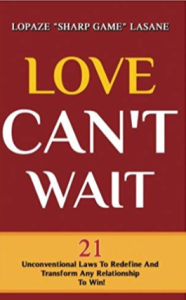The New Facebook Dating Scam
In a digital age where forming connections online has become the norm, the rise of online romance scams is a sobering reality that many individuals are facing, especially through platforms like Facebook and its newly launched dating feature. This deceptive practice preys on the vulnerability and desires of those seeking love and companionship, drawing unsuspecting users into a web of lies and deceit. Understanding the intricacies of the new Facebook dating scam is crucial to safeguarding oneself against potential heartbreak and financial loss.
The mechanics of the new Facebook dating scam are deceptively simple yet insidiously effective. Fraudsters create fake profiles using stolen photos and false identities to lure in their victims. These scammers artfully craft messages and interactions to build a sense of trust and intimacy over time. They exploit emotional vulnerabilities, often targeting individuals who are lonely or going through a difficult period in their lives. As the relationship progresses, the scammer may request money under various pretexts, such as emergency situations or financial hardships, or they may solicit personal information for identity theft purposes. By manipulating emotions and creating a sense of urgency, these con artists perpetuate a cycle of deception that can have devastating consequences for those who fall victim to their schemes.
Recognizing the warning signs of the new Facebook dating scam is crucial in protecting oneself from potential harm. Common red flags include poor grammar and spelling in messages, as scammers often operate from overseas locations and may not be fluent in English. Another warning sign is the reluctance of the scammer to meet in person or engage in video calls, citing a variety of excuses to avoid face-to-face interaction. Additionally, quick declarations of love or affection, especially from individuals who have never met in person, should raise suspicion. Beware of requests for financial assistance, as genuine connections should not involve money matters early on in the relationship. Finally, the lack of presence on other social media platforms or a limited online footprint can indicate that the person you are engaging with may not be who they claim to be.
Protecting yourself from falling prey to the new Facebook dating scam requires vigilance and proactive measures. Utilize tools like reverse image search to verify the authenticity of photos used by your online connections. Refrain from sharing personal or financial information with individuals you have not met in person or known for an extended period. Trust your instincts and exercise caution when interacting with new acquaintances online. If you encounter suspicious accounts or behavior, report them to Facebook to prevent others from being victimized. Stay informed about common online scams and educate yourself to recognize potential threats before they escalate.
The emotional toll of falling victim to the new Facebook dating scam can be profound and long-lasting. Those who have been deceived often experience feelings of betrayal, embarrassment, and shame as they come to terms with the reality of being defrauded. Financial loss incurred as a result of the scam can have serious consequences, leading to stress, anxiety, and even legal implications in some cases. The psychological impact on mental health cannot be overlooked, as individuals may struggle to trust others and form new relationships after experiencing betrayal. Rebuilding trust and confidence in online interactions requires time, effort, and support from friends, family, or mental health professionals who can help navigate the emotional aftermath of being scammed.
FAQ:
Q: Can scammers on Facebook dating be reported?
A: Yes, if you come across a suspicious account or suspect that you are being targeted by a scammer on Facebook dating, you can report them to Facebook for investigation. By reporting fraudulent activity, you not only protect yourself but also help prevent others from falling victim to similar scams.
Q: How can I protect myself from the emotional toll of falling victim to a dating scam?
A: Coping with the emotional fallout of being scammed can be challenging, but seeking support from friends, family, or mental health professionals can help you navigate the healing process. It is essential to acknowledge your feelings, practice self-care, and take proactive steps to rebuild your confidence and trust in online relationships.
Q: What are some common warning signs of the new Facebook dating scam?
A: Red flags to watch out for include poor grammar and spelling in messages, reluctance to meet in person or engage in video calls, quick declarations of love, requests for financial assistance, and a lack of presence on other social media platforms. Being mindful of these indicators can help you identify potential scammers and protect yourself from falling victim to their deceitful tactics.
Author: lovedoctor
Website: http://luvatfirstclick.com







